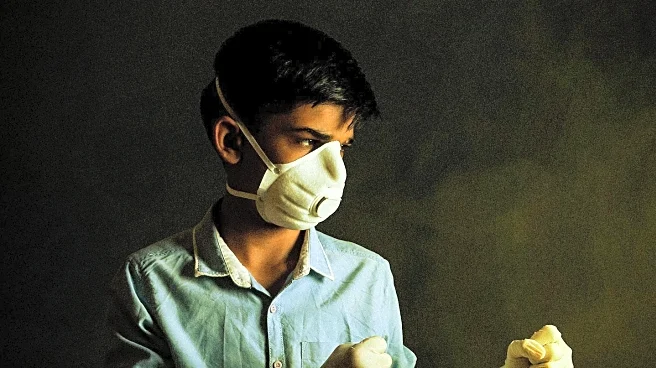What is the story about?
What's Happening?
A study published in The Lancet has revealed a significant increase in cancer cases in India, with a 26% rise in incidence from 1990 to 2023. The study highlights that deaths due to cancer have also increased by 21% during this period. In contrast, both the incidence and mortality rates of cancer have declined in the United States and China, attributed to effective tobacco control, universal vaccination, and organized screening programs. Dr. Abhishek Shankar, a radiation oncologist at AIIMS Delhi, emphasized the need for India to strengthen risk prevention strategies and expand evidence-based screening programs to reverse this trend. The study also noted that 42% of cancer deaths in 2023 were linked to modifiable risk factors, presenting an opportunity for action.
Why It's Important?
The rising cancer rates in India underscore the urgent need for improved public health strategies and access to early detection and treatment. The study's findings highlight the disparity between India and countries like the US and China, where effective health policies have led to a decline in cancer incidence and mortality. Addressing modifiable risk factors such as tobacco use and obesity could significantly reduce cancer-related deaths. The study calls for increased funding and prioritization of cancer control policies in global health agendas, which could have a profound impact on public health outcomes in India.
What's Next?
The study suggests that India should integrate cancer care into its universal health coverage agenda and strengthen risk prevention strategies. A parliamentary committee has recommended raising taxes on tobacco products to make them less affordable and linking the Population-Based Cancer Registry to the Ayushman Bharat Digital Mission for real-time data on cancer patients. These measures could lead to more effective cancer screening and prevention efforts, potentially reducing the burden of cancer in India.
Beyond the Headlines
The study highlights the ethical and social dimensions of cancer control, emphasizing the need for equitable access to healthcare and the importance of addressing social determinants of health. The disparity in cancer outcomes between India and other countries raises questions about healthcare equity and the role of government policies in shaping public health.














